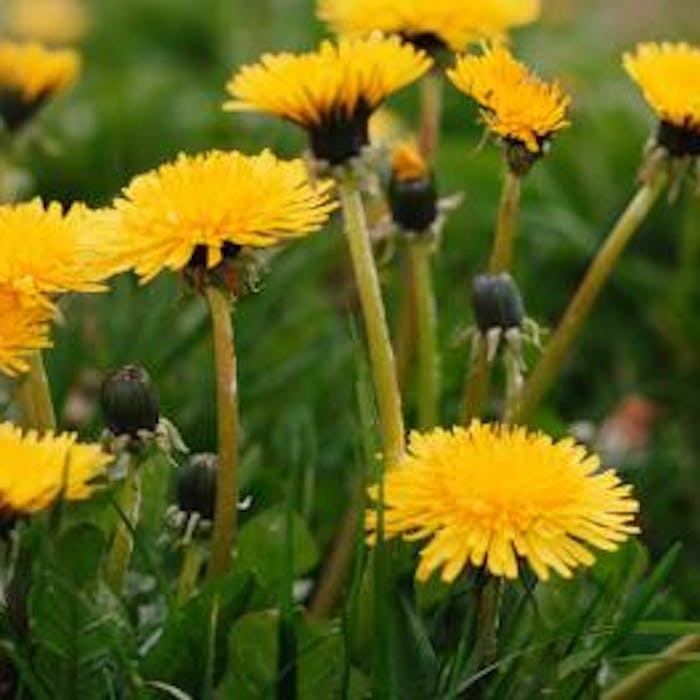
The humble dandelion - curse it and love it
Gardeners may get annoyed with the humble and prolific dandelion, to be found growing rampantly all over Britain, but we would surely be sorry to lose this cheery wild flower, and they are vital to the survival of pollinating insects. And for amusing children!
Dandelions (Taraxacum officinalis) are wildflowers (or "weeds" if you are a gardener!) of grassy places and are very familiar in parks and along town verges. They have very small flowers collected together into a composite flower head. Each single flower in a head is called a floret. In part due to their abundance, dandelions are one of the most vital early spring nectar sources for a wide host of pollinators.
The common name dandelion is from the French - dent-de-lion, meaning "lion's tooth", in reference to the shape of the leaves. There are around 250 different species to be found around the UK. The fluffy white seed heads that follow the flowers are an equally familiar sight, and both beautiful and effective in spreading the plant. Seeds can be carried on the wind as far as five miles from their origin. Children have traditionally loved to blow them, and allegedly tell the time by the number needed to clear the head.
The plants are edible and have been used as food and for their medicinal properties by many civilisations. Raw dandelion greens contain high amounts of vitamins A, C, and K. The flower petals, along with other ingredients, are used to make dandelion wine. Its ground, roasted roots can also be used as a caffeine-free coffee alternative.
Dandelion was also traditionally used to make the British soft drink dandelion and burdock, and is one of the ingredients of root beer. Dandelions were once considered delicacies by the Victorian gentry, who used them mostly in salads and sandwiches.
Further reading
Links to external websites are not maintained by Bite Sized Britain. They are provided to give users access to additional information. Bite Sized Britain is not responsible for the content of these external websites.
